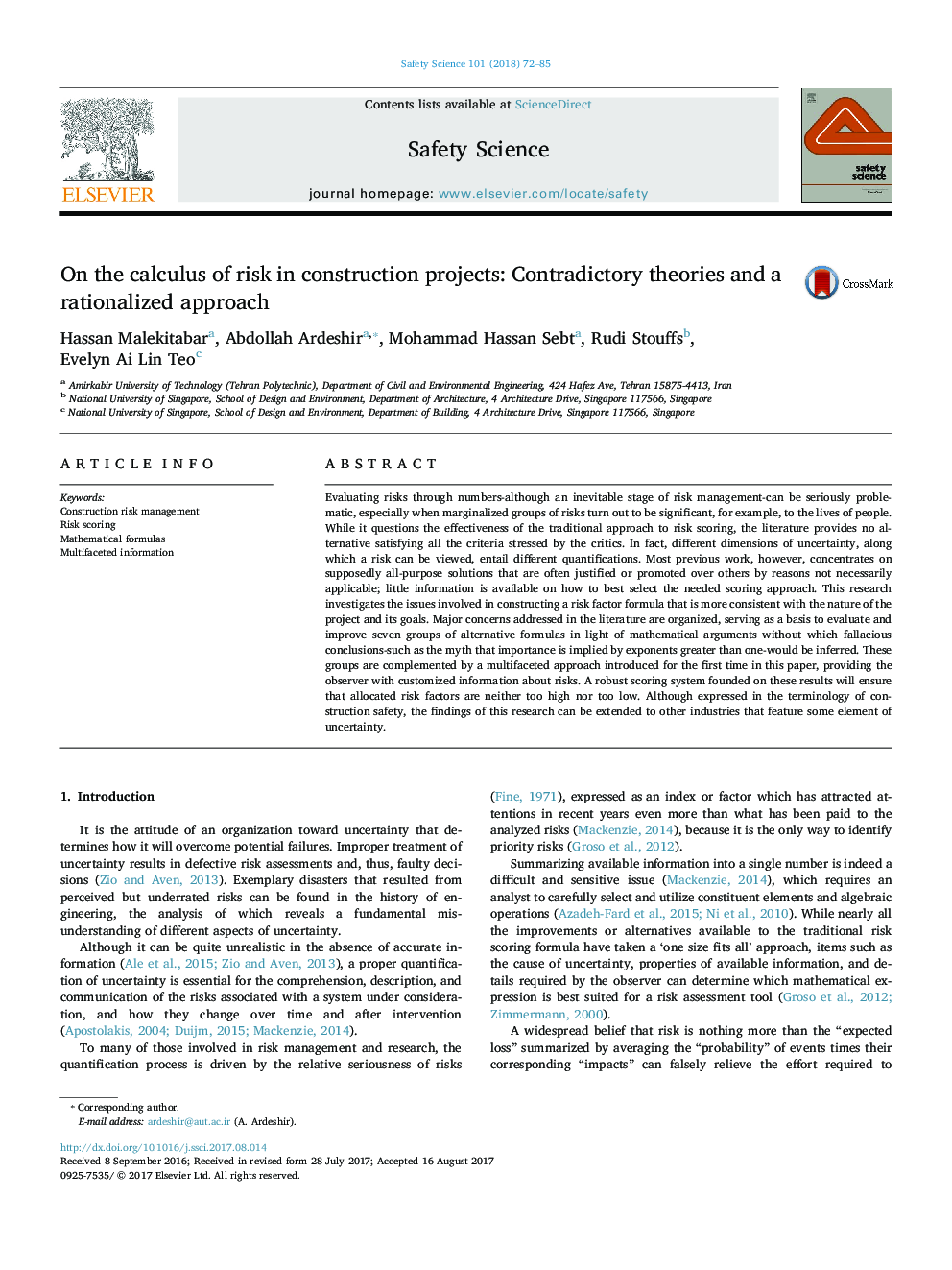| Article ID | Journal | Published Year | Pages | File Type |
|---|---|---|---|---|
| 4981073 | Safety Science | 2018 | 14 Pages |
â¢There is no inherent logic in prescribing a unique, all-purpose risk factor formula.â¢A framework to select best risk factors meeting the applicable criteria is provided.â¢Existing formulas are supplemented by a new multifaceted formula with stable results.
Evaluating risks through numbers-although an inevitable stage of risk management-can be seriously problematic, especially when marginalized groups of risks turn out to be significant, for example, to the lives of people. While it questions the effectiveness of the traditional approach to risk scoring, the literature provides no alternative satisfying all the criteria stressed by the critics. In fact, different dimensions of uncertainty, along which a risk can be viewed, entail different quantifications. Most previous work, however, concentrates on supposedly all-purpose solutions that are often justified or promoted over others by reasons not necessarily applicable; little information is available on how to best select the needed scoring approach. This research investigates the issues involved in constructing a risk factor formula that is more consistent with the nature of the project and its goals. Major concerns addressed in the literature are organized, serving as a basis to evaluate and improve seven groups of alternative formulas in light of mathematical arguments without which fallacious conclusions-such as the myth that importance is implied by exponents greater than one-would be inferred. These groups are complemented by a multifaceted approach introduced for the first time in this paper, providing the observer with customized information about risks. A robust scoring system founded on these results will ensure that allocated risk factors are neither too high nor too low. Although expressed in the terminology of construction safety, the findings of this research can be extended to other industries that feature some element of uncertainty.
